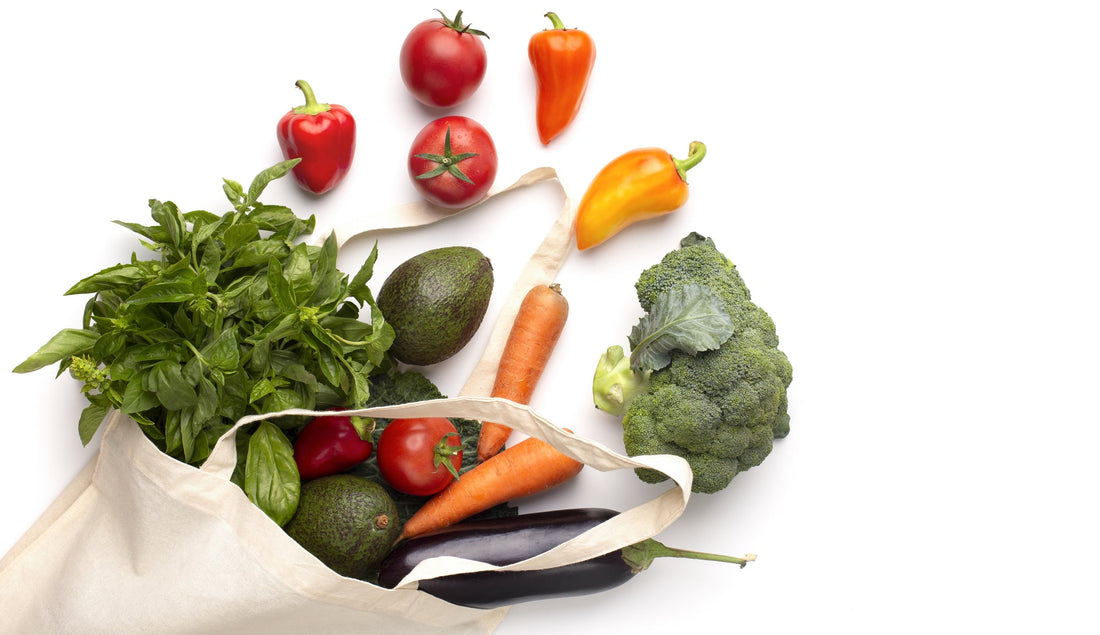Here at Lovebug, we’re really proud to reuse food by feeding our bugs on surplus fruit and veggies that would otherwise go to waste. So as well as switching your furry friend to more sustainable pet food, we want to show you how easy it can be to fight food waste from home. You might even discover some new favourite dishes!
Plan your meals
We understand that it can be so much easier to head to the supermarket and pick up what you fancy, but meal planning really can help to save your pennies (and the planet). While we love the odd takeaway or spontaneous meal out from time to time, be mindful of what’s sitting in your cupboard - 65% of adults admit to buying too much food each week. A lot of this doesn’t get eaten and eventually ends up being thrown away due to it spoiling. It is estimated that 1 in every 5 bags of shopping is fully wasted!
Depending on your lifestyle there are a few different ways you can plan your meals. For some people, this may mean planning specific ideas for breakfast, lunch and dinner. In this scenario, you’ll need to make a list and only buy the necessary ingredients. For others, it might mean roughly planning ahead and having a few different options throughout the week. Try planning your meals around ingredients you already have in your kitchen - perhaps ones that are getting close to their use-by date.
Seasonal fruits and vegetables are often cheaper to buy and taste better too! Eating seasonally also reduces the demand for out of season produce which further supports local farmers - which means less transportation.
Top tip - writing a shopping list can be super helpful so that you don’t forget anything and you’ll be less likely to impulse buy, which can also lead to wasting food.
Get to know your freezer
We know that freezers aren’t great for the planet, but it’s unlikely we’ll all get rid of them. Instead, let’s make sure we’re using them properly. The following tips can help you make sure you’re doing this…
- Keep your freezer full - the already frozen products keep the air cool
- Take off unnecessary packaging in the fridge
- Don’t leave the door open for too long
- Make sure the back of the machine is well ventilated
Freezing is one of the easiest ways to preserve food - and you can freeze more than you think! For example, you can pop fresh food such as leftover bread, wilting herbs or fruit and veg in your freezer to use at a later date. Just make sure to follow the guidelines if provided, or ask your local grocery shop for advice.
The habit of freezing leftover food and meals can be easily adopted by anyone but it’s especially helpful if you live on your own, or have fussy eaters in the house (which a lot of us do). Batch cooking your favourite meals when you have a spare moment can be really time efficient. This way, you’ll always have a home-cooked, hearty meal in your freezer ready to be heated up and enjoyed on those days when you just don’t feel like cooking.
Top tip - Pop any leftover herbs or garlic in an ice cube tray with a dash of olive oil to preserve them ready for a delicious addition to sauces and other dishes.
Get creative with leftovers
Cooking at home can be super fun and rewarding, but more often than not it results in leftovers. Many meals leave you with offcuts of meat, potato peelings or broccoli stalks. These could easily be used in smoothies, soups or broths to help tackle food waste. So it’s time to get creative and avoid throwing away perfectly edible food.
Think of your leftovers as ingredients. Turn cooked vegetables into a frittata or blend for a homemade pasta sauce. Create burritos or wraps with extra rice and meat and top with sour cream and salsa. There are so many easy ways to incorporate leftover dishes with other ones a day or two after.
If you have leftover vegetables, potatoes or herbs you could make a delicious soup. Whole potatoes cut up into chunks also make a great addition to any soup. They thicken up the texture and keep you full for longer. They are also the most commonly wasted food in the UK - 5.8 million whole ones each year!
The benefits of home composting
Home composting is the most environmentally-friendly way of dealing with kitchen and garden waste. If you don’t have enough space for this outside, there are other options too such as a food waste caddy that can be collected each week by your local council.
Composting leftover food and scraps that can’t be consumed elsewhere is a great way to turn energy into food for plants. This method reduces greenhouse gasses and provides gardeners with homemade compost for their plants. It reduces landfill waste which is the ultimate goal here and it can easily become part of your household routine.
How do you help to fight food waste in your home? DM us on Instagram and let us know - we’re always keen to learn more about how we can help our planet.

